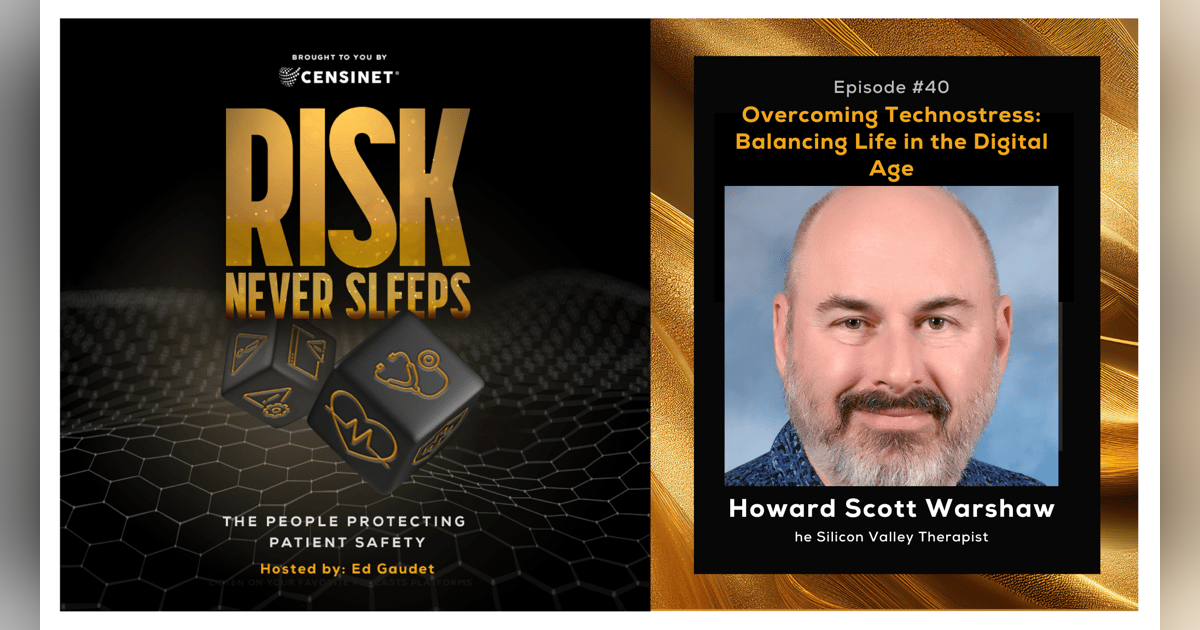Episde #40. Overcoming Technostress: Balancing Life in the Digital Age, with Howard Scott Warshaw, The Silicon Valley Therapist. Part II

How do you disconnect to connect?
In this episode, Scott Warshaw profoundly delves into the anxiety enveloping our society today, mainly focusing on those within technology professions and the importance of staying connected to reality. Howard reminds us not to lose sight of the human element and emphasizes the value of maintaining quality people connections and the personal skills attached to those interactions.
Stay tuned as we navigate this digital wilderness together, focusing on awareness, resistance, and human connection to ensure we use technology as a tool for progress and not as an object of dependency.
For more information and ways to increase risk awareness and safety, visit us at www.censinet.com.
About Howard Scott Warshaw:
Howard Scott Warshaw is the most famous person you’ve ever heard of. He’s a celebrated video game pioneer, MoMA artist, innovative technologist, award-winning filmmaker, author, and speaker. Now, as a licensed psychotherapist in California’s Silicon Valley, Howard specializes in the issues of hi-tech leaders and the super-intelligent. His latest book, “Once Upon ATARI,” details Howard’s legendary exploits at Atari and how they upended his life. Find him at: hswarshaw.com
Things You’ll Learn:
- Understanding how our increased connectivity can contribute to feelings of anxiety and risk mismanagement.
- Exploring the impact of technology, not just as a tool but as a potential addiction, altering our interaction with the world.
- Pulling back on tech immersion, disconnecting to rediscover yourself and the world around you - using the quiet moments to regain a healthy outlook.
- Anxiety often arises from the gap between what we currently experience and what we know we need to be okay. But the human brain is versatile. We learn to adapt. It might be slow, but we can and must develop critical thinking and analysis skills.
- The importance of human connections in averting various problems in work and personal relationships.
Resources:
- Connect with and follow Howard on LinkedIn.
- Learn more about Howard’s work on his website.
- Discover Once Upon Atari book.




